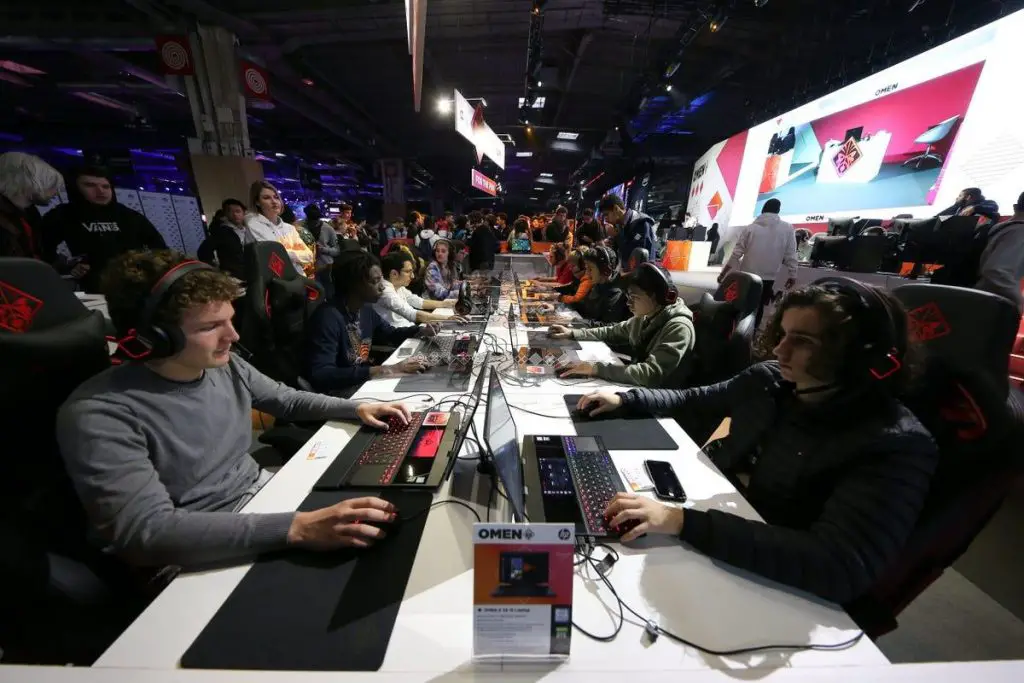Most people who have encountered computer games have either a negative or a positive opinion of this pastime. And for many years, do not cease any debate between the opponents and supporters of computer games. And mostly both sides emphasize issues related to the psyche, society, and personal development. Let’s try to figure out what psychologists think about video games.
Video games are treated negatively, perhaps since their inception. For many decades they have been attributed all sorts of harm to the bodies and minds of children and adolescents. As a result, violence and bloodthirstiness were added to the list of computer games’ sins.
It is also believed that too much involvement in games can cause psychological addiction, and sometimes depression when the player has too much empathy for some not-so-joyful plot developments. Games have also been blamed for the occasional shooting by mentally unstable teenagers in American schools. There are even programs in this country aimed at distracting children from video games. Even so, kids there play just about everything.
So are games harmful? And if so, by how much? Researchers have been asking this question for decades, but the results of various tests and observations turn out to be quite contradictory. In the end, psychologists are increasingly beginning to say that it is time to pay attention not only to the negative but also to the positive aspects of fascination with video games.
But games have changed a lot in recent years, they have become much more complex, more realistic, and more socially oriented. And the results of some studies conducted in recent years suggest that all is not so bad with games. Psychologists have noted that modern video games can help develop social and cognitive skills, provide new emotional experiences, and even sometimes contribute to overall mental health.
Students can feel stressed because of the workload of school or college. Today’s students have a lot of homework, and all their everyday life is scheduled literally by the minute. Computer games help distract and relax after a hard day’s work.
In addition, professional paper writing services like WritingAPaper can help to cope with academic assignments. This service has been providing qualified support to all students for a long time.
Research in the fields of age and evolutionary psychology has long underestimated the positive effects of games, especially during childhood and adolescence. By playing social games, children not only try out different scenarios of interaction with other people but also learn to solve conflict situations that may arise in real life.
But can we consider that video games can also help the younger generation “pump up the skills”? According to Isabela Granik, one of the authors of the study on the benefits of video games, yes, this kind of social interaction can give players the same benefits as “offline” games. Any gamer is well aware that video games not only provide unique opportunities to interact with the in-game system that is unavailable in more passive forms of entertainment (movies, television), but also allow online competition with hundreds or thousands of other people.
There is a huge number of popular game worlds, in which enthusiastically spend time and interact with each other representative of almost all countries in the world.
Cognitive Abilities
Action fans have improved spatial imagination, the ability to mentally rotate three-dimensional objects, they can switch their attention faster and more accurately, they visualize processes with higher spatial resolution. Orientation in space improves rather quickly, and often the result is not worse than after special physical training.
Video games promote more active and effective interaction of neurons, which increases the ability to concentrate and recognize patterns. Fans of shooters do better, and the smallest improvements are noted for fans of puzzle and role-playing games. Although it should be noted that modern games are often very complex, which makes it very difficult to give any verdict on their impact on cognitive ability.
Network games help children and adolescents learn to solve problem situations by forcing them to take different approaches. Interactive games can also stimulate creativity and ingenuity. Although it is not yet completely clear about the correlation between skills acquired in games with real-life situations, the evidence is still encouraging.
Motivation
By solving specific game problems, despite obstacles, young people can develop self-confidence and understand the value of persistence and perseverance. Through immediate problem-solving feedback, players get a visual sense of their abilities and level of intelligence they may not have known they had. Games help children realize that intelligence is an incremental thing, that is, it can increase over time through effort.
As the difficulty of the game increases, so does the skill level of the players, as a result of prolonged practice. And with periodic reinforcement, games encourage you not to give up, despite increasingly difficult challenges.
Emotion
Most people play video games for pleasure, for mood enhancement. In addition to escapism (this is especially important for teenagers), successful gaming helps to reduce irritability and relaxation. Many players note a sense of pride, and deep immersion in the game gives a sense of control in which you completely forget about yourself.
This mental state described by players corresponds to the concept of “flow. According to psychologists, the state of “flow” increases self-confidence and self-esteem, which can theoretically have a positive effect on one’s state of mind.
The positive emotions that arise from regular deep immersion in play can also increase perception and force a new perspective on one’s life. Barbara Frederickson, an author of psychological theory, believes that positive emotions help broaden the range of desired behaviors and build social bonds to help achieve goals and cope with setbacks. It is not yet clear whether video game emotions fit into this theory, but most gamers appreciate the emotional payoff they receive.
Social skills. Today’s video games target intense social activity like never before. Despite the stereotypical perception of gamers as unsociable introverts, over 70% of gamers actively interact in virtual worlds with their friends, playing in teams or competing with them. Through social activity during games, young people learn to communicate with other people, which can be projected into real life as well.
Despite the aggressive plot of many games, they still teach players how to work as a team by focusing on interactions with everyone involved. According to a study, if you play a shooter with friends, your level of hostility and aggression decreases more than if you play the same game alone.
Other Uses of Games
Even though video games have purely entertainment status, their popularity has been put to medical use, to increase motivation in patients. For example, the game Re-Mission was created for children with cancer. This is a shooter game, where you have to control a nanorobot inside the human body and destroy the cancer cells.
Children who play this game learn more about their disease, the side effects of treatment, and the importance of following medical prescriptions. According to research, Re-Mission players have an increased belief in their recovery.
Many other games have already been involved in academic research about foreign language learning, history, geography, math, physics, etc. Some educators believe that video games can be a new tool to help in the learning of educational material. Although it is still poorly studied the impact of educational games so the question of quality control study material still open. Besides, it will always be necessary to find a compromise between entertainment and educational components, so I don’t think we should hope for the widespread use of educational games.
Undoubtedly, in the future, it is necessary to investigate both the advantages and disadvantages of video games to better understand their impact on young minds, including at different stages of personality formation.






